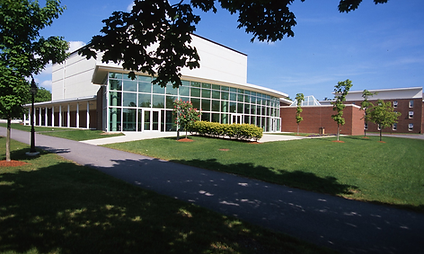Fall Conference

Spring Conferences
“From Tactical Athlete to Weekend Warrior: Spanning Elite Human Performance to General Health and Wellness”
NEACSM Spring 2026 Conference
Merrimack College
North Andover, MA
Friday, April 17, 2026

Conference Description
The 2026 Spring Conference, hosted by Merrimack College on April 17, will feature five presentations from human performance and sport science experts, culminating with a Q&A session between the audience and our invited speakers. Presentations will draw from an array of human performance, health, and wellness topics among military personnel, veterans, and first responders. The conference will also feature several student abstract presentations, which will highlight innovative findings and support young scholars by fostering engagement between our students and professional members. The top three abstracts will be featured in a rapid-fire five-minute oral presentation format.
Key conference topics will include environmental physiology, with a focus on exercise performance at altitude; exercise for mental health, translating research to practice; sex-based performance differences in elite special operations soldiers; and improving function, mobility, and cognition among older adults.
5 ACSM CECs
Objectives:
-
Understand what a tactical athlete is, and how they differ from traditional athletes
-
Foster student/professional engagement and showcase student-led research
-
Expose attendees to sports science research and clinical career paths that support health and performance of our military personnel, veterans, and first responders
-
Learn applications of exercise for promoting mental health, function, and mobility
-
Explore cutting-edge research to understand and maximize performance in elite tactical athletes
Invited speakers:
Tunde Szivak, PhD
Holly McClung, MS
Michelle Pebole, PhD
Roy Salgado, PhD
Elisa Ogawa, PhD
Moderators:
TBA
CALL FOR ABSTRACTS NOW OPEN
Students: Present at the Spring Conference!
The Free Communications Committee is now accepting student abstract submissions. Accepted abstracts will be presented via poster, with a select few to be chosen for rapid-fire e-poster presentation.
Submission Deadline: March 20, 2026 at 11:59pm (EST)
Please direct all questions to the NEACSM Free Communications Committee at: neacsmfreecomm@gmail.com
Sponsor the Spring Conference!
NEACSM offers many opportunities for sponsorship throughout the year. These opportunities provide significant exposure to help market organizations' products and services within and beyond the NEACSM chapter. For more information and to sponsor our conference, contact Sponsorship Committee co-chairs Dr. Matt Orange at morange@ccsu.edu and Dr. Ryan Chapman at rmchapman@uri.edu.
Spring Conference Sponsors

Previous Spring Conferences
2025 Spring Conference: Stronger, Faster, Safer: Enhancing Sports Performance through Optimized Preparation, Injury Prevention, and Rehabilitation - April 22, 2025
Central Connecticut State University
5 ACSM CECs
2024 Spring Conference: Navigating Cutting-Edge Technologies in Health, Sports, and Exercise Science: Opportunities and Implications - April 5, 2024
Virtual Conference
4 ACSM CECs
2023 Spring Conference: Bite-Sized Sessions in Movement Science - April 21, 2023
Virtual Conference
3.5 ACSM CECs
2022 Spring Conference: Beyond FITT: Unique Considerations to Optimize Exercise Prescription - April 8, 2022
Virtual Conference
4 ACSM CECs
2021 Spring Conference: Managing Physical Activity in the New Normal - April 23, 2021
Virtual Conference
4 ACSM CECs
CANCELLED: 2020 Spring Conference: Sex & Gender in Sports & Medicine, originally scheduled for March 27, 2020
University of Massachusetts, Lowell
5 ACSM CECs
2019 Spring Conference: Only the Strong - Brain Versus Brawn, April 26, 2019
Central Connecticut State University
A collaboration with the National Strength and Conditioning Association (NSCA).
5 ACSM CECs/0.5 NSCA CEUs
2018 Spring Conference: EAT, LIFT, BUILD: Nutrition Strategies for the Strength Athlete, April 20, 2018